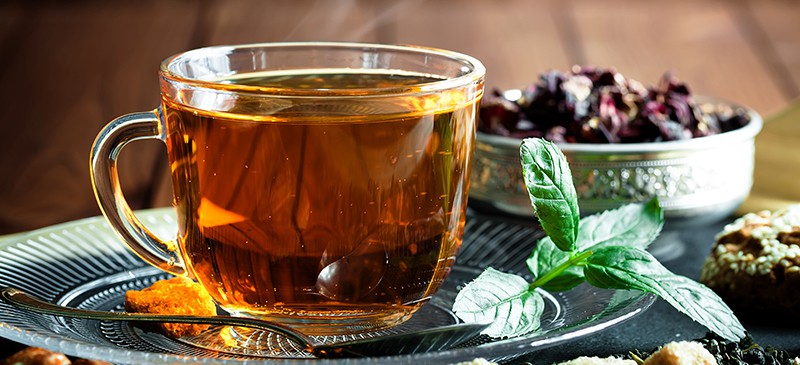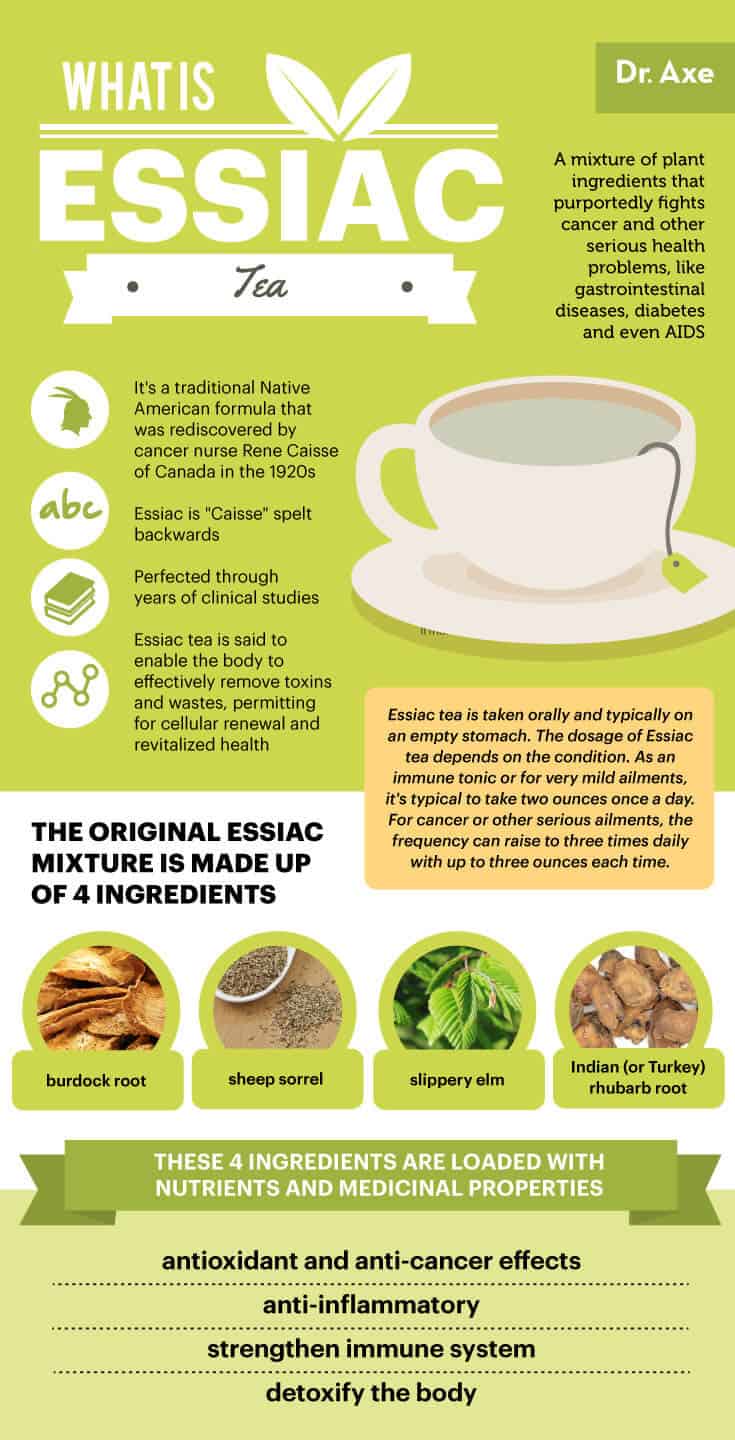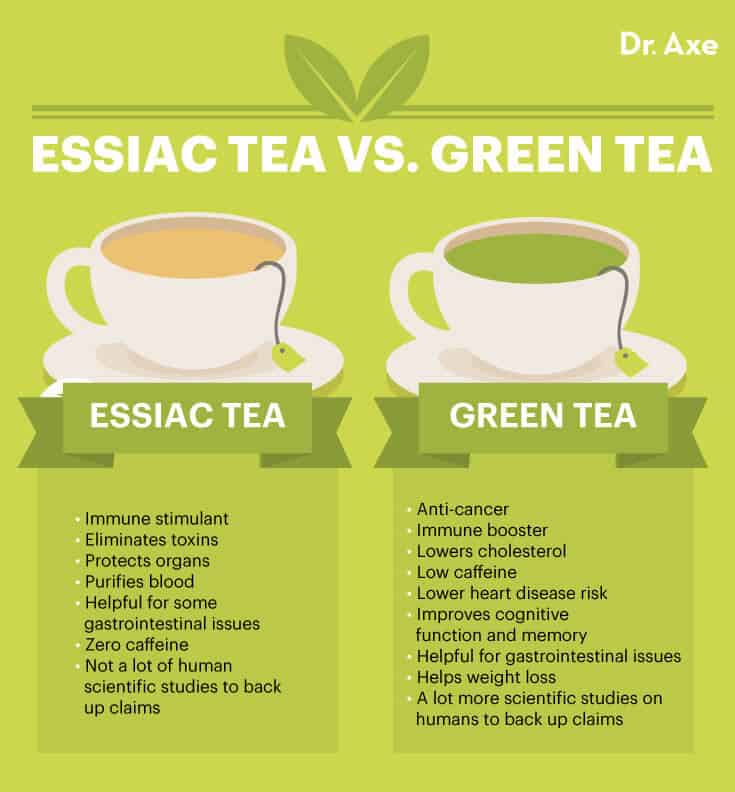This Dr. Axe content is medically reviewed or fact checked to ensure factually accurate information.
With strict editorial sourcing guidelines, we only link to academic research institutions, reputable media sites and, when research is available, medically peer-reviewed studies. Note that the numbers in parentheses (1, 2, etc.) are clickable links to these studies.
The information in our articles is NOT intended to replace a one-on-one relationship with a qualified health care professional and is not intended as medical advice.
This article is based on scientific evidence, written by experts and fact checked by our trained editorial staff. Note that the numbers in parentheses (1, 2, etc.) are clickable links to medically peer-reviewed studies.
Our team includes licensed nutritionists and dietitians, certified health education specialists, as well as certified strength and conditioning specialists, personal trainers and corrective exercise specialists. Our team aims to be not only thorough with its research, but also objective and unbiased.
The information in our articles is NOT intended to replace a one-on-one relationship with a qualified health care professional and is not intended as medical advice.
Does Essiac Tea Help Fight Cancer? Or Is This Hype?
January 10, 2020

There are many herbal and inexpensive concoctions that people claim can help to fight cancer. One example is Essiac tea, a mixture of plant ingredients that may have some anti-carcinogenic effects, although this remains unproven.
What is this mysterious brown liquid? Essiac tea is a traditional Native American formula that was rediscovered by a cancer nurse from Canada named Rene Caisse in the 1920’s. Apparently she perfected the formula through years of clinical research with her longtime colleague, Dr. Charles Brusch, once a personal physician to President John F. Kennedy.
What is Essiac tea good for? Acting as a tonic, it’s said to enable the body to effectively remove toxins and wastes, permitting for cellular renewal and revitalized health. While it has most notably been used for its anticancer effects, essiac may hold potential to help treat conditions including gastrointestinal diseases, diabetes and even AIDS too.
What Is Essiac Tea?
Essiac tea is a tonic made from a mixture of roots, bark and leaves. The original formula is believed to have come from an Ontario Ojibwa Native American medicine man.
The original recipe was made with four ingredients: burdock root, sheep sorrel, slippery elm and Indian (or Turkey) rhubarb root. A similar product known as “Flor Essence” is made with the same ingredients, plus four additional ones: watercress, blessed thistle, red clover and kelp.
It is estimated that over 50 percent of all patients diagnosed with cancer explore complementary and alternative medicine, especially herbal medicine. If you’re interested in complementary treatment for cancer, Essiac tea is one option to consider, ideally while working with a qualified holistic health practitioner.
The U.S. Food and Drug Administration has neither approved Essiac or Flor-Essence as a cancer treatment, nor are there many scientific studies to back up the anti-cancer claims. However there does exist some promising research, and many first-hand accounts, demonstrating its abilities.
Where did the name Essiac come from? Essiac was given its name by Rene Caisse. “Caisse” spelt backwards is Essiac. In the 1920s, Rene Caisse was a nurse in Canada who started promoting Essiac as a natural cancer treatment.
According to some records, the recipe originated from an Ontario Ojibwa Native American medicine man. Fast forward to present day: Essiac and Flor Essence are still sold as herbal supplements, but they cannot claim to treat or cure cancer.

Nutrition Facts
As mentioned above, Essiac tea is typically made with four ingredients: burdock root, sheep sorrel, slippery elm and Indian (or Turkey) rhubarb root. Because there are some nutritional differences between Essiac and Flor Essence, considering they contain a unique mixture of ingredients, they may have somewhat different effects.
Manufacturers and marketers of Essiac tea debate about the differences between Turkey rhubarb and Indian rhubarb. Many herbalists, who are focused on medicinal qualities of herbs, seem to agree that both varieties of rhubarb are about the same nutritionally/medicinally and both are better than common garden rhubarb root.
Here’s a bit more about the ingredients used to make this herbal remedy:
- Burdock root (Arctium lappa L.) — This root vegetable contains volatile oils, plant sterols, tannins and fatty oils. One noteworthy compound it supplies is a lignan called arctigenin, which is believed to inhibit cancer cell production. Other compounds in burdock have been shown to have diuretic effects and the ability to increase blood flow and help stabilize blood sugar.
- Sheep sorrel (Rumex acetosella L.) — This ingredient contains anthraquinones, which research suggests can stimulate peristalsis in the gastrointestinal tract and increase the secretion of mucous. It may also have antiviral effects.
- Slippery elm (Ulmus fulva) — It’s used to soothe sore throats and causes increased mucus secretions that lubricate the GI tract and protect the intestines.
- Rhubarb root (Rheum palmatum L.) — As a rich source of antioxidants including polyphenols, flavonoids and tannins, it seems to help fight free radical damage.
Health Benefits
1. Natural Cancer Fighter
Does essiac cure cancer? Not quite. Reports that it can help those battling cancer are based on testimonials more so than conclusive cancer research. And a 2018 review published in PDQ Cancer Information Summaries states that “No controlled data are available from human studies to suggest that Essiac or Flor Essence can be effective in the treatment of patients with cancer.”
That being said, the herbs used to make Essiac tea have been reported to have some antioxidant and anti-cancer effects. Essiac itself has demonstrated anti-cancer activity in lab settings, however it’s still not entirely known if and how it can destroy cancer cells.
A study in the Journal of Ethnopharmacology examined the effects of Essiac on free radical scavenging and DNA damage. The data from the study showed that Essiac tea possesses potent antioxidant and DNA-protective activity, two key properties common to natural anti-cancer agents.
Another study published in The Canadian Journal of Urology showed that a 64-year-old man went into remission from hormone-refractory prostate cancer consumed Essiac before his remission. However it’s hard to say his recovery could be attributed to Essiac.
This herbal formula may also help inhibit growth of breast and leukemia cancer cells, according to some studies. However, one study found that it did not improve overall quality of life or moods in women being treated for breast cancer. Its effects on breast cancer cells is also controversial, as there’s some evidence it may stimulate the growth of breast cancer cells in some individuals.
There are also some doctors, like Dr. Murray Susser in Los Angeles, California, who claim to have seen Essiac tea extend the life of cancer patients. That being said, it’s not intended to be used in place of conventional chemotherapy.
2. Anti-Inflammatory
Essiac tea may act as a natural anti-inflammatory agent — which is beneficial considering that chronic inflammation is the root of many diseases. It may be especially helpful when it comes to treating the inflammation and chronic pain associated with arthritis, cancer and HIV.
Sheep sorrel, one of the four key ingredients in Essiac tea, is commonly used to help reduce inflammatory conditions including those caused by respiratory problems such as sinusitis. The tannins present in sheep sorrel are believed to help decrease the overproduction of mucus.
3. Strengthens Immune System
In vitro analysis of Essiac shows that it has significant antioxidant and immunomodulatory properties. It has also exhibited the ability to help kill tumor cells. It’s believed that burdock root in Essiac tea can support detoxification by boosting functions of the lymphatic system, a part of the immune system that distributes infection-fighting white blood cells throughout the body.
4. Detoxify the Body
Burdock root found in Essiac is used as a natural blood purifier, while rhubarb root can also help detoxify the body thanks to their gentle yet highly effective laxative effects. This mixture may also help cleanse the liver by removing waste from the body.
Used traditionally in small amounts, this herb acts as a gently laxative and helps purge the liver of toxic buildup and waste.
5. Improves Gastrointestinal Problems
Essiac tea’s slippery elm is helpful for managing a variety of gastrointestinal issues. Slippery elm contains mucilage, a substance that becomes a slick gel when mixed with water. This mucilage coats and soothes the lining of the mouth, throat, stomach and intestines. Slippery elm is also high in antioxidants and can may help decrease inflammation that contributes to gastrointestinal conditions.
Increased mucus has the benefit of guarding the gastrointestinal tract against excess acidity as well as ulcers. This is why Essiac is sometimes recommended for sore throats, coughs, gastroesophageal reflux disease (GERD), Crohn’s disease, ulcerative colitis and irritable bowel syndrome (IBS).
Indian/Turkey rhubarb further helps the gastrointestinal system because it contains malic acid that helps the body to make ATP more efficiently, aiding in energy levels and healing.

How to Use
Where can you buy Essiac tea? Unfortunately, results of studies conducted on Essiac have not been reported in any peer-reviewed scientific journals, therefore it isn’t sold as a medication or widely available. In the United States, health tonics and dietary supplements are regulated as foods, not drugs, so the FDA does not control for quality or guarantee any results.
Since the 1980s, several companies have been making Essiac-like products. None of these companies are permitted to make claims that the mixtures treat or cure any disease, but many consumers buy these Essiac products to self-treat and cure various health ailments.
A lot of health stores and online shops sell an already made Essiac Tea called Caisse’s Tea that claims to follow the original Canadian formula. To prepare Caisse’s tea, you add two ounces of heated spring water to two ounces of the concentrated tea. It is recommended that you take this mixture 30 minutes before breakfast or before bed two hours after eating dinner.
You can also buy Essiac tea in tea bag form, which is commonly called Ojibwa tea, named after the Native American tribe with the same name. Additionally, Essiac in powder or capsule forms are also available in some herbal stores.
How do you drink Essiac tea?
Essiac tea is taken orally and typically on an empty stomach.
Essiac tea dosage recommendations vary depending on the condition being treated. As an immune tonic or for very mild ailments, it’s typical to take two ounces once a day, although people use doses ranging from 1–12 fluid ounces (30–360 ml) daily. For cancer or other serious ailments, the frequency can raise to three times daily with up to three ounces each time.
If you have a serious health condition it’s best to work with a qualified herbalist who can recommend the safest and most effective dosage for you.
How to make:
Here is a basic Essiac tea recipe you can prepare at home:
Ingredients:
- 6½ cups of burdock root (cut)
- 1 pound of sheep sorrel herb (powdered)
- 1/4 pound of slippery elm bark (powdered)
- 1 ounce of Turkey or Indian rhubarb root (powdered)
Directions:
- Mix these ingredients thoroughly and store in glass jar in dark, dry place.
- Measure out 1 ounce of the herb mixture for every 32 ounces of water (depending on the amount you want to make).
- Combine the herbs and water in a stainless steel or cast iron pot and boil hard for 10 minutes covered.
- Turn off the heat, keep the pot covered and leave the mixture out over night.
- The following morning, heat the mixture to steaming hot, but not boiling.
- Turn off the heat and let it settle a few minutes then strain through fine strainer into hot sterilized glass bottles and let it sit to cool.
- Store the mixture in a dark, cool place until first use. Once opened, it must be refrigerated going forward.
Risks and Side Effects
If decide to try this herbal tea for any health concern, it’s best to first speak with a professional who can help you decide if it’s a smart choice and guide you to a proper dosage and duration of use.
Because there hasn’t been enough research done in children, it’s not known if giving this herbal mixture to children is safe.
What are the side effects of Essiac tea? There are few reported side effects, however makers caution that consumption can potentially contribute to increased bowel movements, frequent urination, flu-like symptoms, swollen glands, headaches, and skin redness or inflammation. Some of these possible side effects can likely be related to increased detoxification of the body.
Check with your doctor before consuming it if you are diabetic, taking anticoagulant drugs, or if you have had a cholecystectomy (removal of the gallbladder).
If you have osteoporosis, you should also consult with a physician since the oxalic acid present in the mixture can interfere with calcium metabolism. If you are taking any cardiac glycosides, ask your physician to monitor you closely for possible toxicity of the drug. Some constituents in this tea may assist the body to utilize these types of drugs more efficiently.
There are several other groups of people who will likely not benefit or might have adverse effects from the consumption of Essiac tea.
- Since Essiac tea has constituents that might increase blood flow to the pelvic region and stimulate menses, it is not recommended for women who are pregnant or trying to conceive. It is also not recommended for nursing mothers or children under the age of 12.
- If you have a history of increased iron levels then you should avoid it, since it contains varying amounts of iron.
- If you have kidney disease or are prone to kidney issues, the oxalic acid in this mixture may irritate the kidneys.
- Additionally, if you have diarrhea, bowel obstruction, ulcers or colitis you need to be cautious with Essiac tea since the Turkey rhubarb in the tea has a laxative effect and can also be irritating to these conditions.
- If you have a brain tumor or tumors that are encroaching on a major blood supply then avoid consuming it unless working with a doctor.
If you notice any adverse effects after consuming this tea, then you should stop taking it right away and consult with your doctor.
Is Essiac safe for dogs? Research to date suggests that although it’s generally safe for pets, there’s little information available about dosage recommendations and effectiveness.
Final Thoughts
- Essiac tea is a herbal tea made with ingredients including burdock root, sheep sorrel, slippery elm and Indian (or Turkey) rhubarb root.
- While conclusive research is lacking, according to mostly anecdotal evidence, Essiac tea benefits may include helping to support those recovering from cancer, treating symptoms of digestive disorders, reducing inflammation and pain, helping to treat respiratory problems, and supporting detoxification.
- The FDA has not approved the use of either Essiac (or Flor Essence) for the treatment of cancer or any other medical conditions.
- Possible Essiac tea side effects can include increased bowel movements, frequent urination, flu-like symptoms, swollen glands, and skin redness or inflammation

